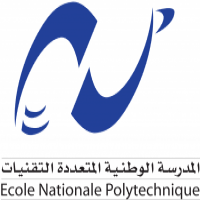School History
opened in October 1926, aimed to train Superior Technicians for large public services and industrial and public works companies.
The Industrial Institute of Algeria operated normally until 1942. Closed at that time due to the 2nd World War, it was reopened in 1945, attached to the State Secretariat for French Technical Education and reorganized in the sense of a higher level of education. This allowed in 1950 (JORF of August 27, 1950), the creation of the “Diploma of Engineer of Public Works and Building”, issued by the Minister of National Education, (State Secretariat for Education Technical). The Institute then took the name of National School of Engineers of Public Works and Building.
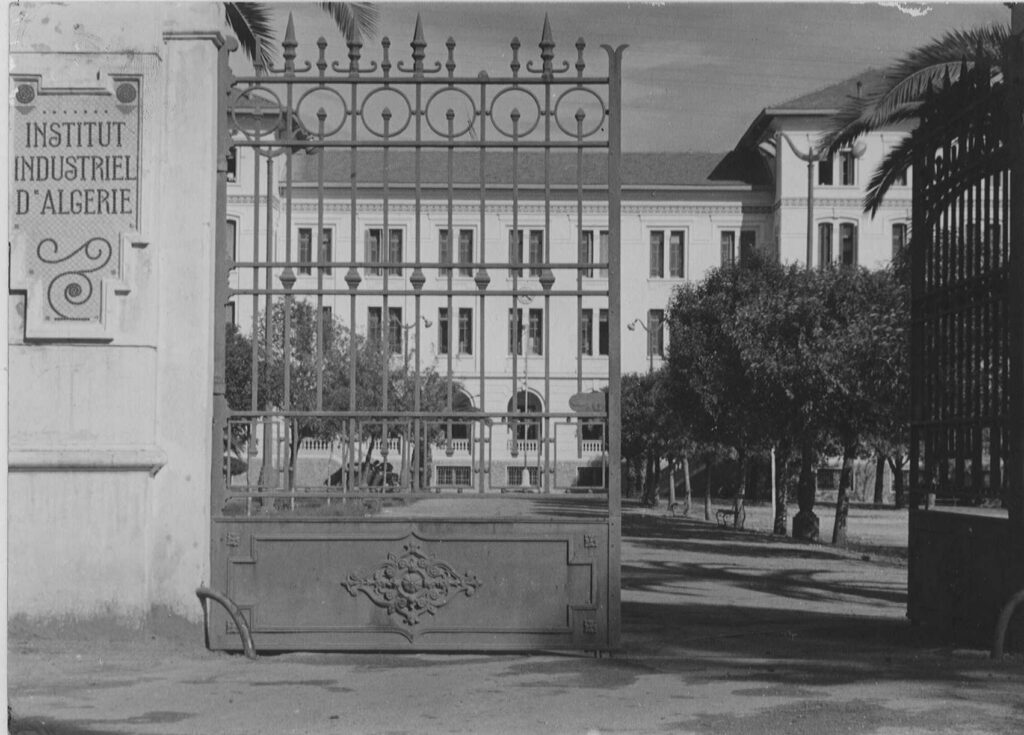
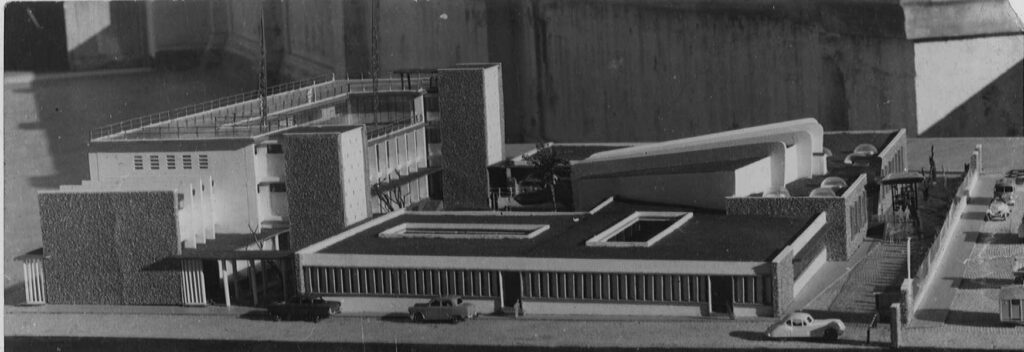
In 1955, a program for the evolution of the School was studied and led to the creation of two other specialties: Electrical engineering and Electronics.
Studies of development programs were continued and resulted in 1958 in the transformation of the establishment into the National School of Engineers of Algiers, intended to train engineers in the following specialties:
- Public works
- Building
- Electrical engineering
- Electronic
- Mechanical.
What were the first years of the existence of the E.N.P?
The return of six teachers from the School and the arrival of four new professors made it possible, in November 1962, to set up sufficient educational structures for the 71 engineering students who had just been enrolled and divided into 1st and 2nd. year. It should be noted that the 24 2nd year students came from different universities, responding to the appeal launched in October 1962 by the Minister of National Education; they interrupted their studies, which were sometimes well advanced in the science license, and thus constituted the first class of ENP engineers; they set an example of dedication, through their participation in the economic development of the country.
The number of students rose successively to 147 in 1963, 272 in 1964, 300 in 1965, … 556 in 1973 1600 in 2007. After more than 40 years of existence, the ENP can be proud of having provided the training of 7,900 engineers meeting the criteria imposed by international standards.
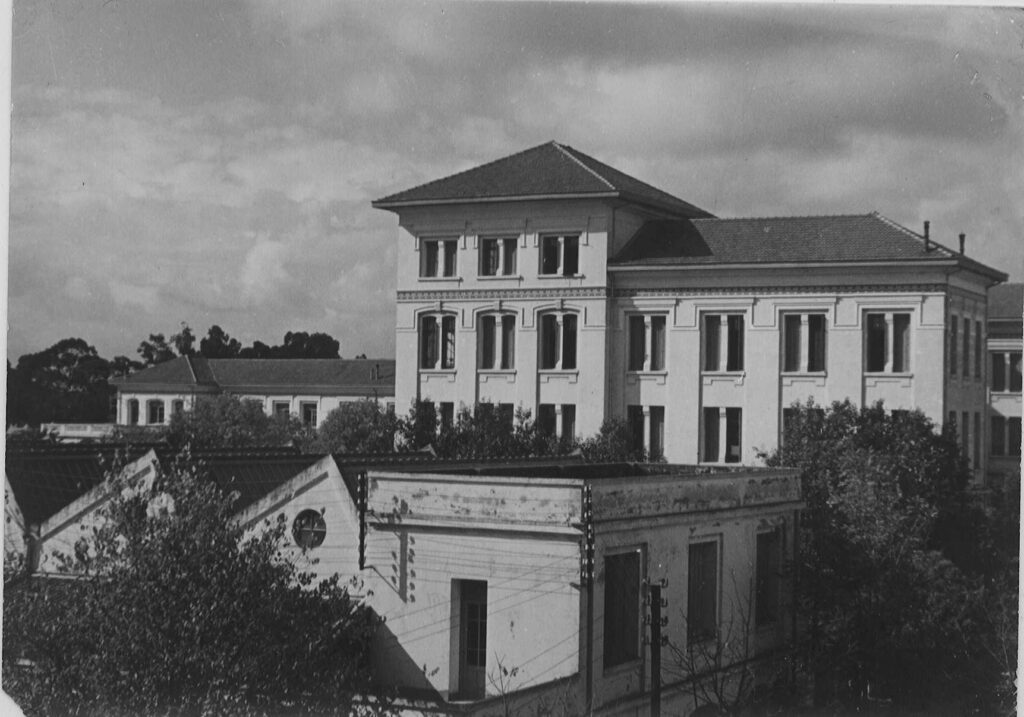
To ensure its functioning, the E.N.P. from October 1963, benefited from UNESCO aid which resulted in the execution of four projects.
During the first three named, UNDP / UNESCO / ALG. 001, 002 and 003, twenty-nine experts, from October 1963 to June 1971, actively and effectively participated in the establishment of structures to enable the School to train engineers of international level. On the other hand, the scholarships awarded within the framework of these three projects have made it possible to train abroad, the teachers having to replace the experts who have arrived at the end of their mission.
The other projects ALG / 31 and ALG / 86, implemented respectively from October 1971 to June 1975, and from March 1988 to July 1995, concerned post-graduation within the School itself and the granting of scholarships. for the preparation, abroad, of doctoral theses in Technology. During these last two projects, the experts were not at the school all the time; their contracts provided for assignments of a maximum of two weeks, during which they provided post-graduation courses and supervised the applied research work of doctoral students.
Thus, ENP has benefited from the scientific and educational support of very high-level teachers, in their capacity as experts (UNDP or UNESCO) or Technical Cooperators. These teachers came from various countries such as Great Britain, Switzerland, Poland, Romania, Syria, Canada, Germany (GDR / FRG), the former USSR, Bulgaria, France, Belgium , India, Vietnam…; several engineers trained at the School continued their PhDs with some of these experts or in their home establishments. The School has also trained engineers from several countries in Africa and the Middle East, and a few from Europe.
UNESCO’s aid, combined with that of bilateral cooperation, has above all made it possible to ensure the “succession” of cooperating teachers, since practically 1978.
Initially attached to the University of Algiers from 1962 to 1973, then to the University of Science and Technology of Algiers, which became the Houari Boumediène University of Science and Technology, the School acquired its autonomy in 1983
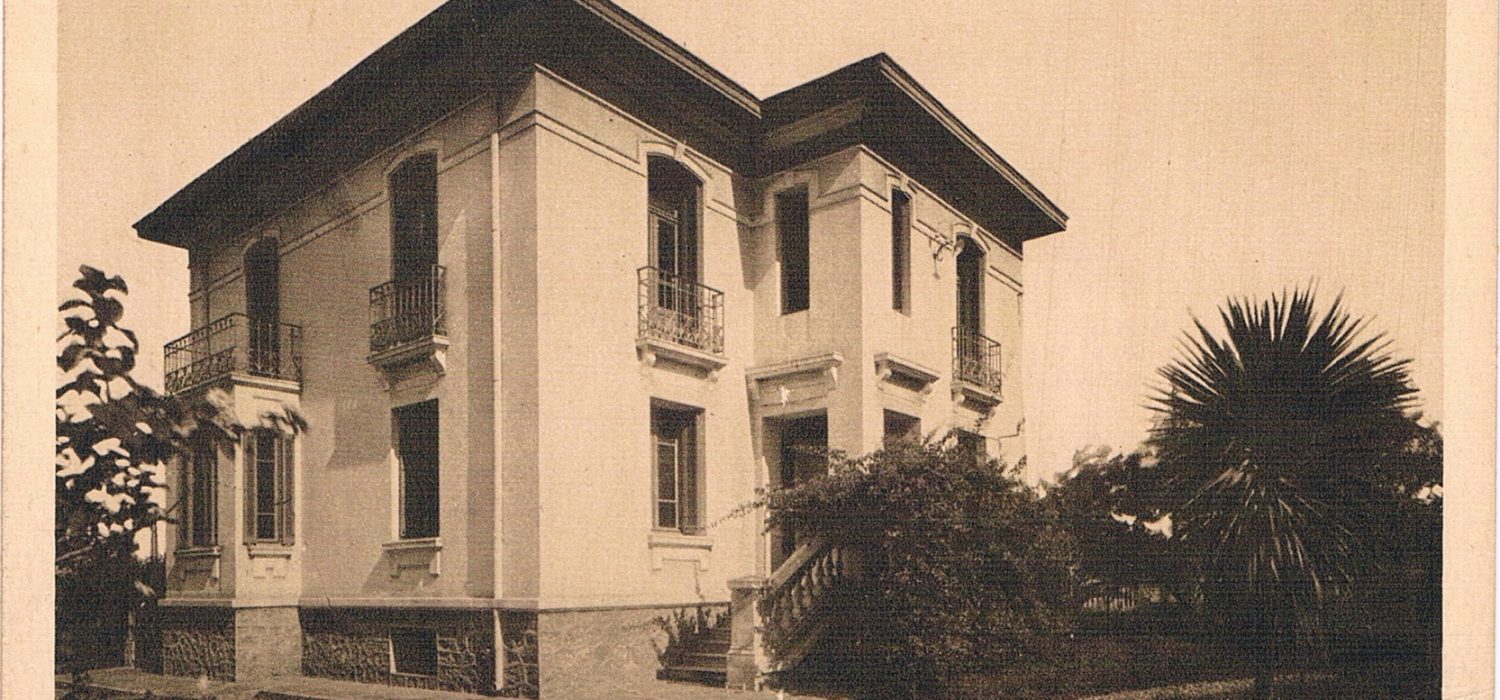
Before the 1970s, the engineering student at the National Polytechnic School of Algiers had the possibility of having a contractual relationship with companies. This link allowed him to benefit from annual internships, a pre-salary and a guaranteed recruitment at the end of his training. Thus, the main internships programmed in the School’s specialty courses were practically provided in their entirety. The School has also benefited from the collaboration of Industry, in the training of engineers, in the form of specialized conferences and sometimes even supervision of certain subjects. Some teachers also had the opportunity to work as consulting engineers in the industrial sector.
From the beginning of the eighties, and thanks to the reorganization of post-graduate training, a significant amount of research work began to be carried out within the University in general, and at the School in particular. , with regard to Technology. Unfortunately, the demographic growth made the old type of relationship practically impossible, and the only links still existing were limited only to certain interventions in the supervision of subjects, on the part of Engineers from the industrial sector, and to a reduced number of internships carried out with difficulty by the students.
In the mid-eighties, the School relaunched its relations with industry and organized study days in order to achieve contractual relations between the two sectors. The Association of graduates of the E.N.P. (ADEP) was created during this same period. His actions led to the signing of a framework agreement with some thirty companies. This type of agreement has made it possible above all to carry out internships, end-of-study projects (5th Year) and research work in various fields of interest to the School, both in Magister and in State Doctorate.
ADEP has often been called upon to find sponsors in the organization of the end of year ceremony (awarding of prizes to the laureates), and of national and Maghreb scientific meetings. Currently, the Association is organizing meetings with engineering students in the field of employment, as well as Scientific, Technical and Economic Days and Conferences.
Like the Scientific Clubs that existed during the 1980s, the associative, cultural and scientific movement has taken shape within the School. The first two associations, TECHNO-POL and MAARIFA, have already organized cultural events, and more particularly Conferences and Open Days on job creation. Other science associations and clubs are currently in operation.

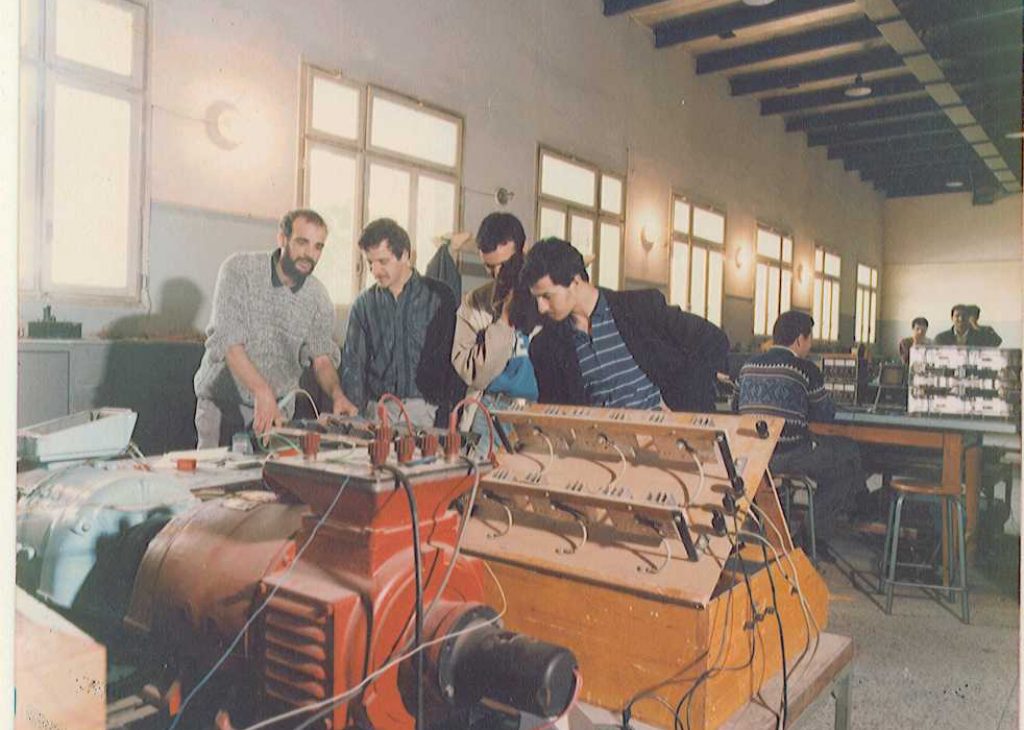
At the beginning of the nineties, and with the new economic orientations of the country, directed towards the market economy, a new political vision, following the socio-economic crisis, encouraged the strengthening of relations between the Schools of ‘Engineers and Industry. Research carried out in collaboration with Industry was very well received, but still remained very limited. New legislation on the provision of services to the University has been introduced, but still falls short of the concerns of researchers who would like to optimize their research activities, by signing a contract involving the School, through the Laboratory concerned, and the Company.
Since its creation, and especially after its autonomy in 1983, the School has had many links with other higher education and / or research establishments, both in Algeria and abroad.
Nationally, the School’s teachers have participated in several committees on educational programs, as well as on assessment and educational progression. They were called upon for several expertises in these three fields, and on the establishment of educational and research laboratories in Technology. They have also collaborated in setting up higher education institutions in Technology and some have even held important administrative positions.
In the field of post-graduate training, the School’s structures are called upon by researchers from different establishments. The majority of research is published or communicated respectively in renowned scientific journals and at some of the most important congresses worldwide.
During the period 1995-1997, access to the School was made directly in a specialty for a three-year training course, after successful completion of preparatory studies for engineering sciences, or the Common Core of Technology.
At the same time, the ENP contributed to the establishment of Preparatory Classes, to which access was granted by competitive examination (classification after Baccalaureate, mention Fairly good or higher). This experience has enabled the School to improve its preparatory cycle programs. Indeed, the specificity of the School, characterized by the training of versatile engineers, requires very solid basic training. Thus, and pending the arrival of third-year candidates from preparatory class-type training, the School’s curriculum will continue to be completed over five years.
In the same vein, the School periodically updates its specialty training programs in order to further improve their quality, making it possible to have many more creators than job seekers. Thus, and particularly since the update of June 1999, a step has been taken in the context of the introduction of Social Sciences and Human Sciences subjects from the first year. A modern language course, in this case English, is given during the five years of training. Much space is also reserved for the introduction of digital methods in several subjects, making the use of IT tools even more widespread and for internships in companies.
The same directions have been taken with regard to the use of the INTERNET. To this end, an INTRANET network has been created and the installation of local networks by structure is well advanced. To improve the educational service, the School has enriched and varied its documentary collection consisting of the most recent books and high-level periodicals. Likewise, the computer tool has been introduced into the operation of this fund. Our library has successfully conducted a Tempus network project with 09 university libraries (RIBU).
Regarding the relationship with Industry, the School established in 1995, in collaboration with about twenty companies and the ADEP Association, a new type of agreement, allowing the signing of contracts in order to ensure the functioning and funding for research. These framework agreements have been signed with around thirty companies and already make it possible to define a certain form of quite original partnership. The objective is to achieve the creation of a network of companies and users, large enough to make effective the support of internships for engineering students, and that the latter are seriously introduced in the training and taken taken into account in the evaluation and the pedagogical progression. Some experiences, both in graduation and post-graduation, have been communicated in World Congresses organized by or under the aegis of UNESCO. In this same context, an ENP-Business Managers meeting was set up from October 1999. The first, co-organized with Environment Engineering Consult (EEC) and the TECHNO-POL and MAARIFA Associations, targeted the managers and graduates of the School, so that the Association of ENP graduates (ADEP) fully plays its role vis-à-vis the younger generations of engineers trained by the School.
In the field of scientific research, certain companies and organizations, such as ENICAB, SONATRACH, SONELGAZ, NAFTAL, AIR ALGERIE, NAFTEC, ENG, ORGM, ENOR, ENEL, ENIEM, SNVI / CVI, Central Bank of Algeria, SAIDAL, MOUBYDAL, ENOF, and CRD / SONATRACH, among others, have enabled the realization of several end of studies, Magister and PhD theses projects, at a lower cost for the School and having a very important impact on an industrial scale. A new type of partnership was developed between ENP, CRD / SONATRACH and ENOF jointly, and resulted in the realization of a very important first scientific, technological and economic project. Other companies, like EEC, sponsor certain research activities and jointly organize scientific and technical seminars and conferences with the School.
Internationally, the School has signed cooperation agreements with institutions from different countries among those mentioned. Currently, cooperation is carried out largely with France, within the framework of program agreements, or by simple contacts between laboratories, allowing the performance of certain research work requiring an environment both human and material, not available to the School. Some work has been carried out or is also being done with the contribution of British, Canadian, Belgian, Japanese, Polish, Hungarian establishments …
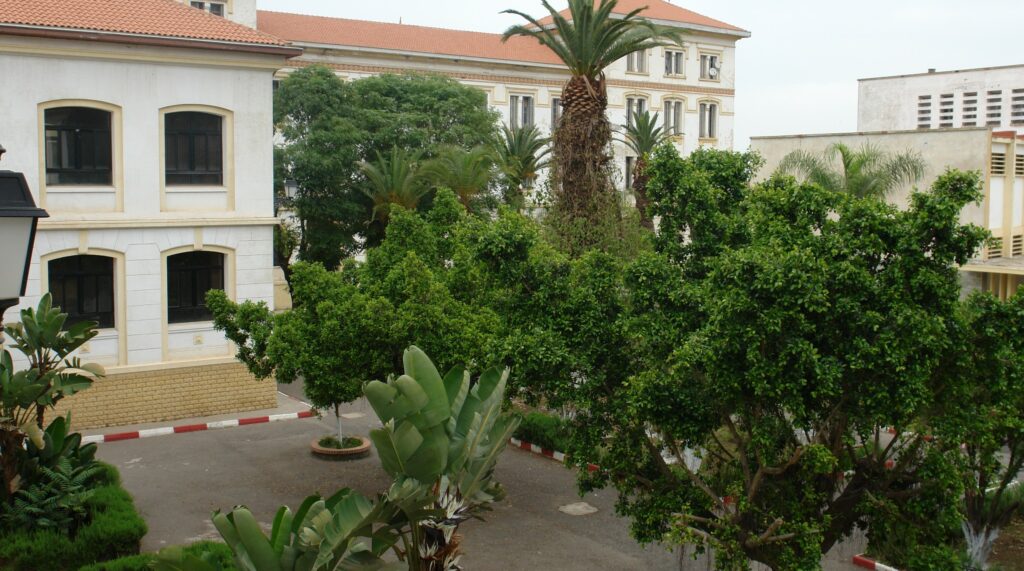
Currently, the School tends to broaden its relations at the national and international level through cooperation and exchange agreements including work programs allowing the realization of national, regional and international work. The TOKTEN project established by Algeria and the UNDP made it possible to benefit from the experience of experts of Algerian origin residing abroad.
Other projects that may be proposed to UN agencies will facilitate the scientific and technical development that the ENP aspires to. It is essential in this regard to have easy access to international networks for communication, information and knowledge transfer. The School’s membership in such networks will allow a certain development of all the Algerian establishments which are linked to it, given the specificity of the fields concerned. Thus, the School collaborates closely with INRIA in Paris, and participates in a Euro-Mediterranean research consortium on water problems, in association with information technologies, within the framework of the ESIMEAU and WADI project. . The School is a member of the Mediterranean Network of Engineering Schools (RMEI). Finally, she officially joined the Schlumberger Ambassador School program and since January 2008 ENP has been a member of AUF. It has gradually embarked on a “Quality” approach through its participation in a TEMPUS project, involving a Euro-Mediterranean consortium of 22 establishments. It should also be noted that the School updated the programs and reorganized its teaching at the end of this 1st semester 2008, in accordance with the Higher Education reform. To support this ambitious file, the School has set up its Virtual Campus and the platform e-learning.
The School is also a training center for trainers. Post-graduation, Magister and Doctorate, evolves dynamically, in line with technological development. The same is true for Specialized Post-graduation, provided for the needs of the School’s industrial partners, but which remains to be further developed. This dynamic has evolved much more with the opening of the new type of research laboratory. Since 1995, the School has recorded the training of some 600 Magisters and 163 Doctorates.
Currently, the training of engineering students is provided first in the undergraduate department for two years constituting a Common Technology Core. Then, the engineering students are oriented, in order of merit, in the specialty departments which provide the teaching of eleven technology specialties.

